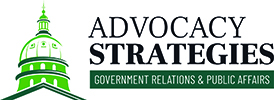This week in the Iowa Legislature
Things are slowly starting to take shape and beginning to wrap up at the statehouse! Just a few short working days remain before the scheduled adjournment date of Tuesday, April 16th when legislators per diem payments end. A few pieces of key legislation and the budget remain unresolved which will prevent the legislature from finishing on time. Lawmakers still need to reach an agreement on joint budget targets, the Governor’s reform of state boards and commissions package, a possible tax cut proposal, and a utility rates bill which has been in the works all session long.
This week House Republicans acknowledged an “oversight” within the final iteration of House File 2612, the Governor’s Area Education Agencies reform bill. They say the mistake occurred after a few words slipped by in a 50-page amendment and will result in $68 million being allocated directly to school districts rather than being required to be used for AEA education support and media services. House Republicans want to fix this “oversight,” however, Governor Reynolds has stated she has no interest in changing the bill she has already signed into law. This could result in even more funding shortfalls for the AEAs over the next two years which will impact services to Iowa kids.
House members felt confident enough with the state of current negotiations and passed legislation on Wednesday to adjourn early and head home for the week while the Senate stayed to wrap up some floorwork on Thursday morning. We are hopeful an agreement on joint budget targets will be announced early next week; we have heard they are close, but we never know what that really means!
Bills Signed by the Governor this Week
The Governor had a busy week signing dozens of bills approved by the legislature. Below is a review of some of the more noteworthy legislation she signed:
- Storm Water Regulations: After failing on the House floor in week 10 of the session, House Republicans filed a “Motion to Reconsider” and passed Senate File 455 the following week. Their Senate colleagues quickly followed suit. The bill prohibits cities and counties from imposing stricter stormwater and topsoil regulations than outlined by Iowa’s Department of Natural Resources.
- Foreign Land Ownership: Senate File 2204, one of the Governor’s legislative priorities for this session, was signed into law on Tuesday. The bill requires any foreign entity to register Iowa land ownership with the Secretary of State and outlines penalties for unregistered parties. The legislation was passed unanimously and has wide support from the public.
- Creating the Crime of “Illegal Re-Entry”: This legislation allows state law enforcement to arrest an individual who has entered the U.S. illegally and grants judges the ability to order an immigrant’s removal. The United States Supreme Court recently reviewed and approved similar legislation passed in Texas. Governor Reynolds signed SF 2340 on Wednesday with many Republican lawmakers in attendance.
Budget Process
Below is our chart outlining the status of the budget bills in each chamber. The LSB bills represent the initial House proposals. There are still no joint budget targets as the chambers continue to negotiate and work to resolve an $82 million gap in their overall budget proposals.

Noteworthy Floor Action
Armed School Security Personnel
The Senate amended House File 2586, a bill that would allow trained school employees to carry firearms on school property. School staff would not be required to carry a gun but could earn a permit to do so. The Iowa Department of Public Safety would issue the permits in addition to providing quarterly firearm training and annual emergency medical training. School districts and staff would receive immunity from criminal and civil liability for any “damages incurred pursuant to the application of reasonable force.” GOP Senate lawmakers decided to strike the provision that created a grant program dedicated to paying for school resource officers. The grant would have provided up to $50,000 per year that the state would match. The amended bill heads back to the House for consideration on a 30-14 vote, with one Republican and all Democrats voting in opposition.
Regulating Traffic Cameras
House File 2681 requires any city or county wanting to implement automatic traffic enforcement (ATE) cameras to obtain a permit from the Iowa Department of Transportation. To receive this permit, local governments must provide accident records, along with the speed and severity of said accidents. The DOT would consider the totality of the safety concerns and then decide whether to issue a permit. This legislation caps the speeding ticket rate at $500 for any individual driving over 30 miles per hour above the speed limit. An amendment offered on the floor to ban traffic cameras outright failed 47-50. HF 2681 passed on a vote of 85-12, with several Democrats advocating for less regulation, and Republicans arguing against any traffic cameras being allowed at all.
Looking Ahead
14 weeks down and due to final budget negotiations still pending it is unclear when we can expect the legislature to adjourn. Legislators are juggling several moving pieces with the budget, boards and commissions package, and a possible tax cut proposal still unresolved. We will keep you updated and inform you as soon as these final pieces fall into place.

